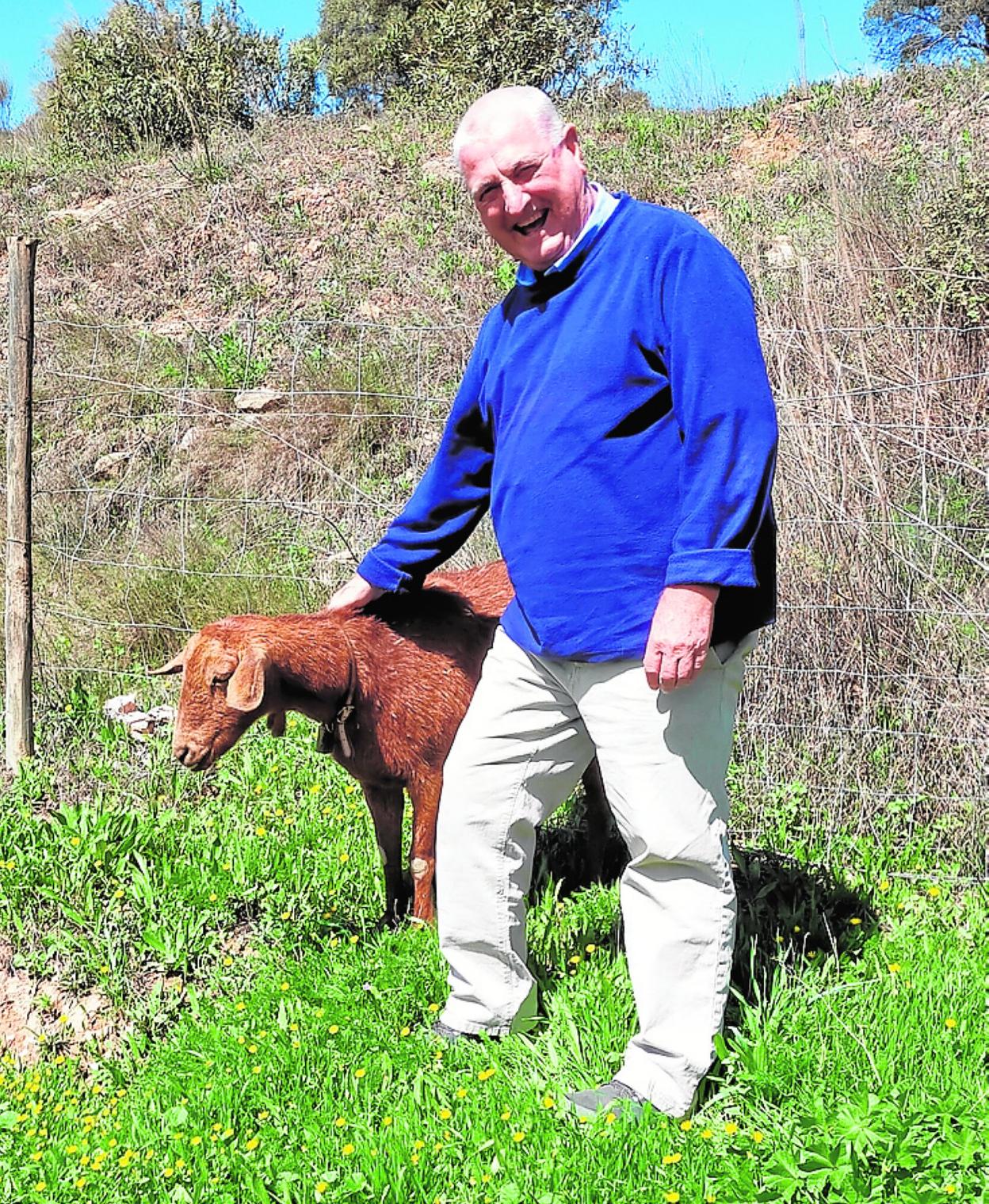'Volunteering and helping is the best way to fill your time'
Chris Cluderay is president of the association of volunteer interpreters in the Axarquía and is also involved with a charity in Alcaucín
JENNIE RHODES
Friday, 22 April 2022, 11:39
Chris Cluderay has been the president of the association of volunteer interpreters at the Axarquía hospital for eight years and a volunteer with them for 11.
He's guided his team through the effects of Brexit and of course the Covid pandemic, when Brits and other Europeans living in the Axarquía have needed assistance with regards to post-Brexit rights, Covid vaccinations and of course hospitalisations. He is also involved in a local charity in Alcaucín, where he and his wife have lived since 1995.
Chris, 72, is originally from Yorkshire and has been a Hispanophone from an early age; he discovered a passion for the Spanish language as a teenager when he started learning at school. "I just clicked with it," he says.
After studying the language at 'A' Level, Chris came to Madrid where he became an English teacher. He returned to the UK where he taught Spanish in UK secondary schools and says that he's been "backwards and forwards" between the two countries ever since.
He's participated in teacher exchanges and has been a language assistant in Spanish schools. However, it was in 1995 that he and his wife Sheila decided to move to Spain full time.
Having spent most of his time in Madrid and the north, I asked Chris what brought the couple to Andalucía. "Sheila's brother had a holiday flat in Puente Don Manuel. It was very primitive back then, but you could see that the area was changing. We knew we wanted countryside and were attracted by the lifestyle," he admits.
They bought a house in the 'campo', slightly north of Puente and have been there ever since. "It was a ruin," Chris recalls, adding that one of their main challenges was not being able to get fresh milk, so the couple bought their first goat. "We didn't know how to milk her and on our first attempt it took us about an hour to get half a cup," he laughs. Being able to speak Spanish, they soon became friends with a local goat herd who showed them the ropes.
Chris and Sheila went on to have more goats as well as a few sheep and even ventured into the world of pig rearing at one point, but are now just down to two "retired" goats, Nieta and Petal. They also keep chickens and hens and have a vegetable patch on the small holding that came with the house.
"Having all the animals has been very tying. We haven't been able to travel much as you can only go away if you can find someone to look after them," Chris admits, adding "I'd recommend it to anyone who doesn't enjoy travelling!"
Volunteering
It was when Chris started to cut down on the teaching, which he did here in Spain for a number of years - both Spanish for foreigners and English for Spanish people - that he went along to the Axarquía hospital to offer his services as a volunteer.
Chris explains that the system is much more organised now than when it first started. "It was quite ad-hoc," he says, adding that volunteers would just turn up and wait around in A&E (Urgencias) and it "grew organically from there".
The association formed about 12 years ago and a formal agreement with the Junta de Andalucía was signed about eight years ago. "I have really enjoyed it," he says.
When he isn't on duty with the hospital, which since the pandemic started, has offered a telephone service only, as the regional government is still not allowing volunteers to have a physical presence in health centres, Chris also helps out locally with the Alcaucín Community Association.
He explains that they have a second hand shop as well as a bookshop, which is the part he runs. The association raises "a lot of money for local charities and families," Chris says. It also supports a school in Africa and has helped the local primary school, most recently raising money to buy sports equipment and a new television.
The retired Spanish and English teacher says that volunteering and helping other people is "the best way to fill your time".
